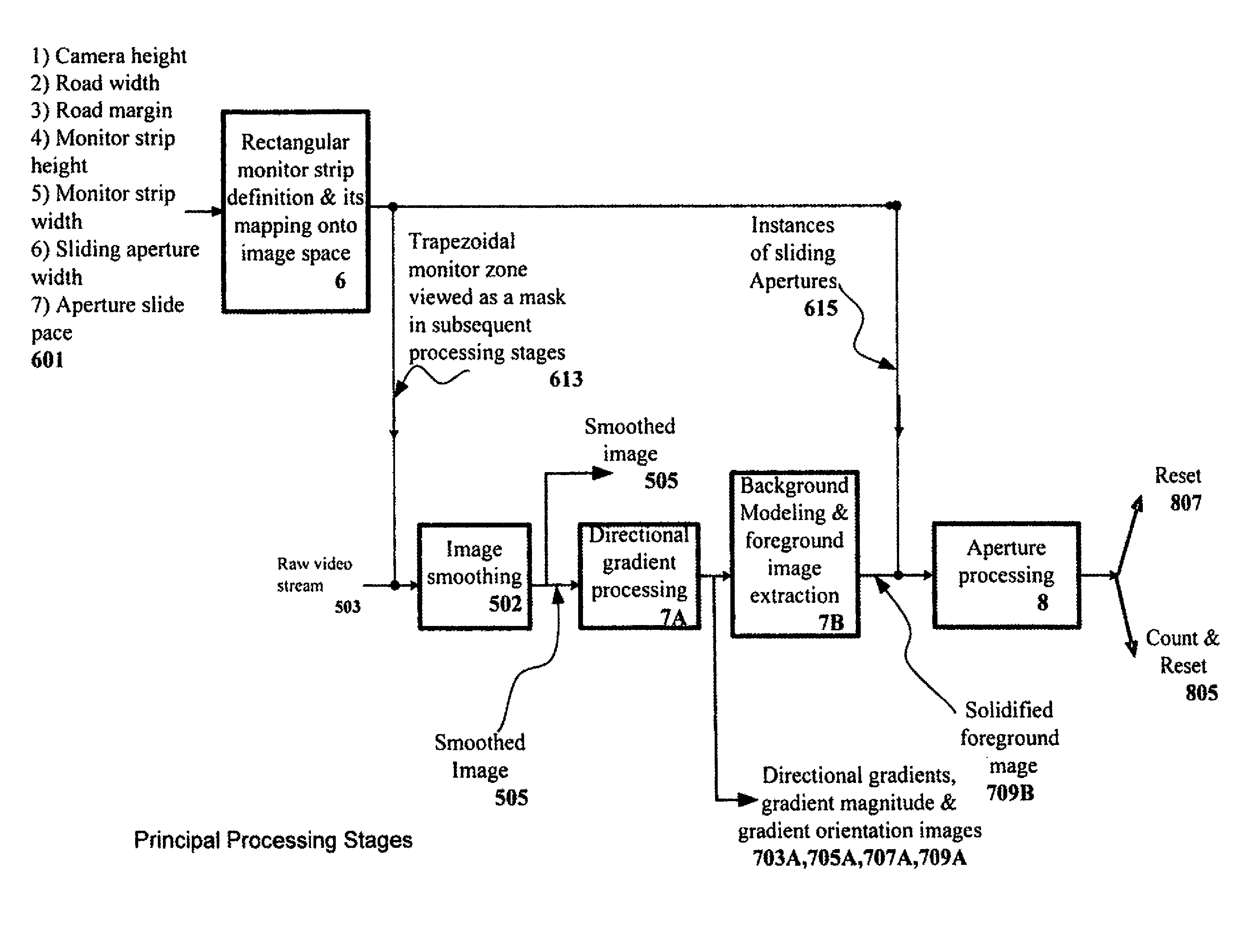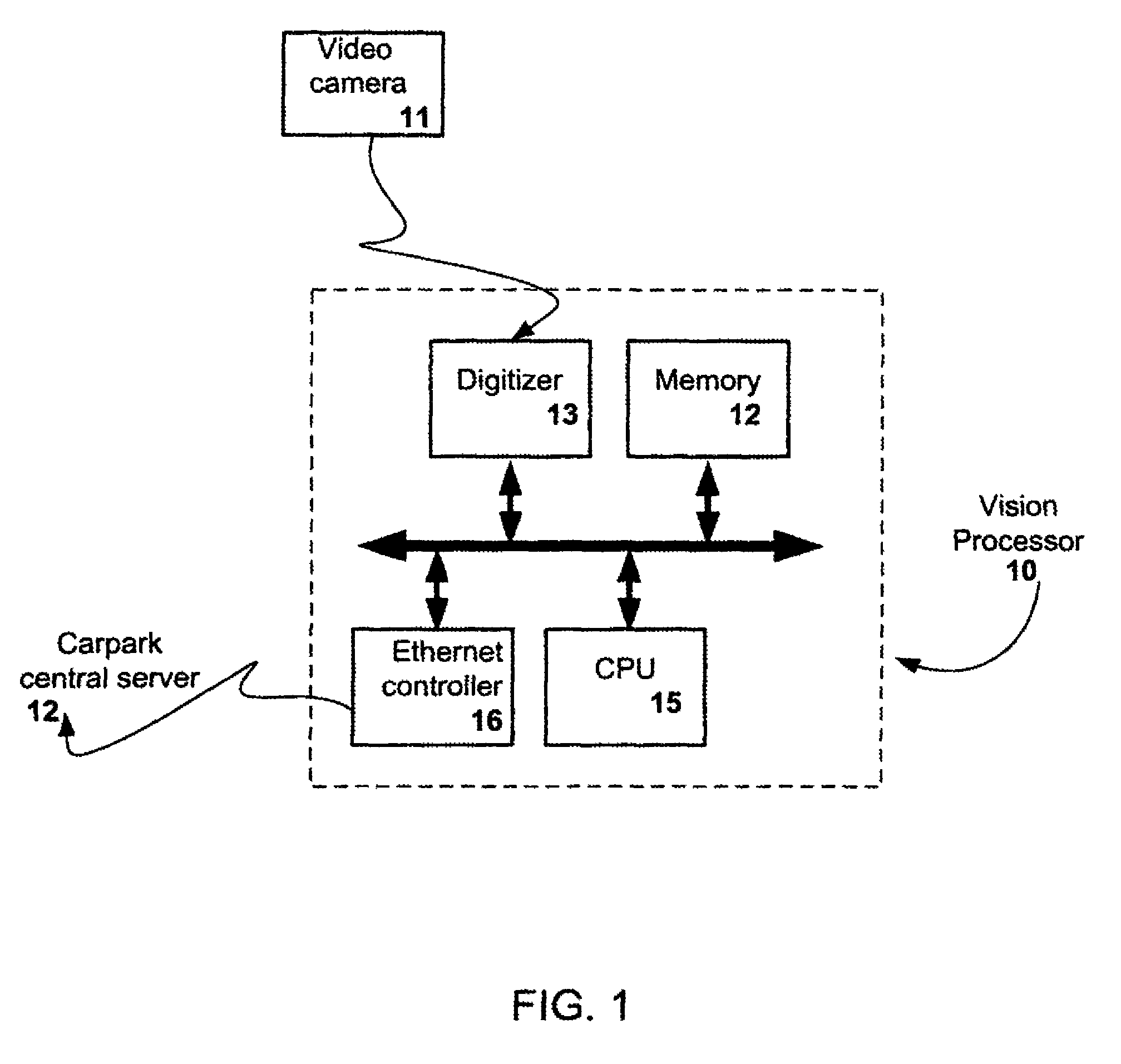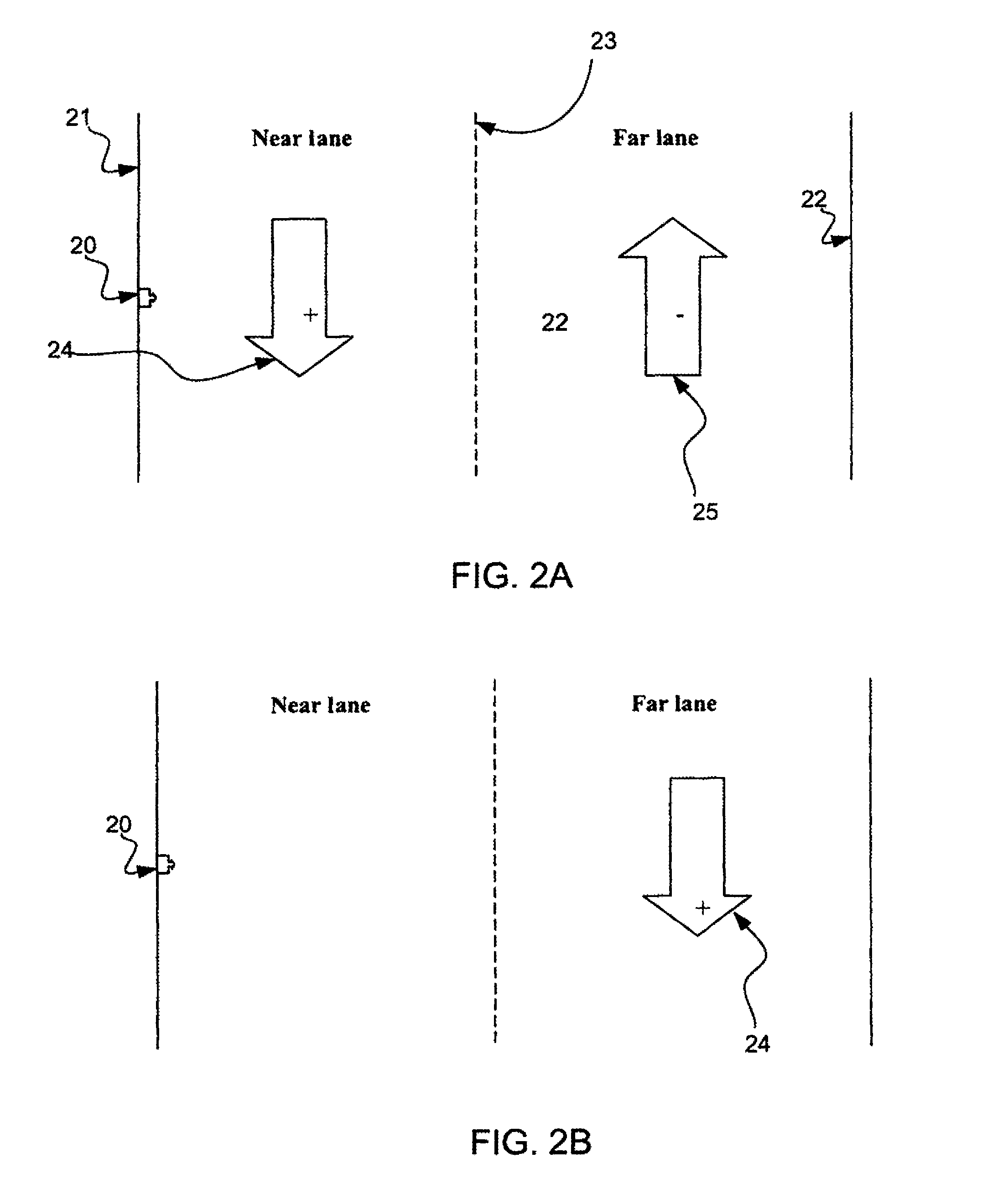Vision-based car counting for multi-story carparks
a technology of carparks and counting machines, applied in the field of vision-based object counting and image processing in general, to achieve the effect of low ceiling
- Summary
- Abstract
- Description
- Claims
- Application Information
AI Technical Summary
Benefits of technology
Problems solved by technology
Method used
Image
Examples
example hardware
[0053]FIG. 1 shows the generic composition of a vision-based car counting system as intended in the present invention, however, for explanation purposes the simplest and minimal configuration has been chosen, as will become apparent shortly. It comprises a video camera 11, a vision processor 10, which is connected via a communication link to the carpark central server 12 through which it reports every instance of a passing vehicle in the direction of concern while ignoring those in the opposite direction. Ultimately, each count finds its way into the carpark database 12. The video camera may be an analog, digital or a hybrid camera. When the camera is analog, the vision processor 10 as shown in FIG. 1 acquires the image sequence through a digitizer 13 which in turn dumps the image data into the address space of the vision processor 10. The vision processor 10 may be realized through a central server supporting one or a multitude of channels with each channel being identified with a ...
PUM
 Login to View More
Login to View More Abstract
Description
Claims
Application Information
 Login to View More
Login to View More - R&D
- Intellectual Property
- Life Sciences
- Materials
- Tech Scout
- Unparalleled Data Quality
- Higher Quality Content
- 60% Fewer Hallucinations
Browse by: Latest US Patents, China's latest patents, Technical Efficacy Thesaurus, Application Domain, Technology Topic, Popular Technical Reports.
© 2025 PatSnap. All rights reserved.Legal|Privacy policy|Modern Slavery Act Transparency Statement|Sitemap|About US| Contact US: help@patsnap.com



